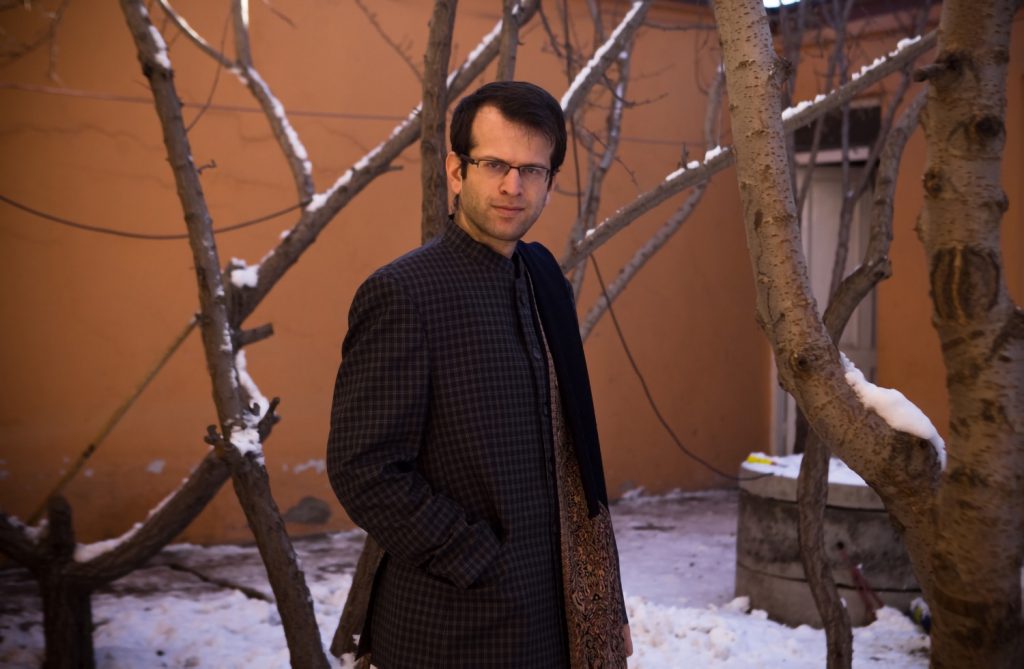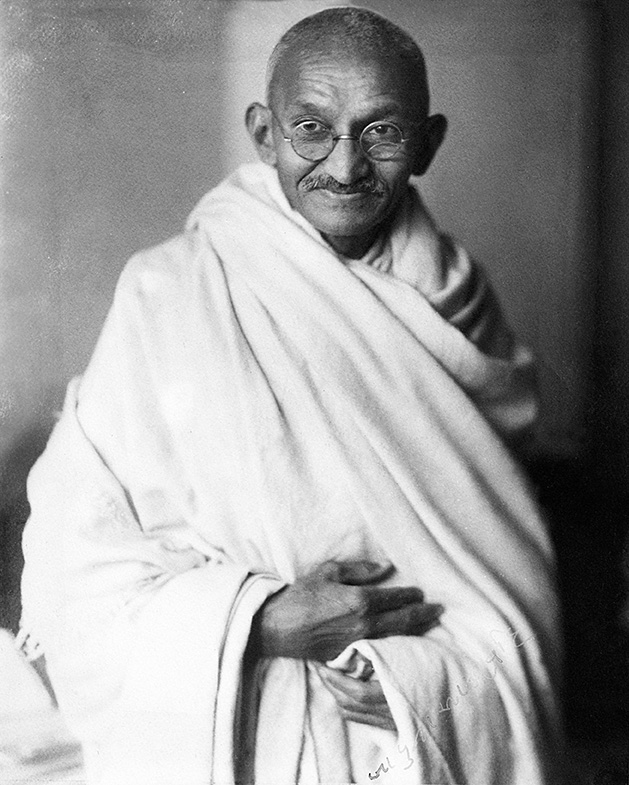Around the World and Back: Flint Native to Perform Original Work with FSO
William Harvey, composer, conductor and violinist, has traveled all around the globe – he currently serves as concertmaster of Mexico’s Orquesta Sinfónica Nacional. He also taught violin and viola at Afghanistan National Institute of Music (ANIM), where he founded the Afghan Youth Orchestra. As a conductor, he’s led professional orchestras throughout Mexico and youth orchestras in Argentina, Qatar, the Philippines, Zimbabwe and the United States. But it all started in Flint.
 Harvey was born in Flint in 1982 to parents Susan Raccoli, a piano teacher (at FIM for a time), and Jay Harvey, reporter for the Flint Journal. Harvey got his musical start at age three driving to Okemos for Suzuki violin lessons with Sheryl Hudler. William’s brother, Theodore, also took cello lessons in the area.
Harvey was born in Flint in 1982 to parents Susan Raccoli, a piano teacher (at FIM for a time), and Jay Harvey, reporter for the Flint Journal. Harvey got his musical start at age three driving to Okemos for Suzuki violin lessons with Sheryl Hudler. William’s brother, Theodore, also took cello lessons in the area.
“We would drive an hour each way with both boys, singing ‘You Can’t Get to Heaven on Roller-Skates,’ and making up different verses. We’d sing the whole way,” recalled Susan Raccoli, Harvey’s mother.
Although the family moved to Indianapolis when Harvey was just four, he shared one vivid and defining memory from his time in Flint (aside from playing in the yard at his house on Montclair Ave. in Flint’s College Cultural neighborhood).
“I remember my mom saying my violin came in the mail, and I was so excited that I ran around the house,” said Harvey. “Later on, when I was taking auditions, my trick to keep myself from being nervous was to play for that little three-year-old kid. Boy, did that kid running around the house in Flint, Michigan know that his violin would take him to Afghanistan, Zimbabwe, to now Mexico and Carnegie Hall?
“Sometimes I think back to that memory – which is probably one of my very earliest memories – as a means of reminding myself why I play music,” he said.
Harvey says he gets bored easily, which was his explanation when asked what compelled him to start composing music. “The things I do as a violinist inform conducting which informs composing – it’s all related, it’s just different forms of expression,” said Harvey.
 The first public performance of one of Harvey’s pieces occurred in 1996, and he began conducting in 1999. He earned his Bachelor of Music from Indiana University, where he studied violin with Mimi Zweig and composition with Sven-David Sandström. Harvey went on to study violin with Ronald Copes and composition with Samuel Adler at Juilliard, where he earned a Master of Music degree.
The first public performance of one of Harvey’s pieces occurred in 1996, and he began conducting in 1999. He earned his Bachelor of Music from Indiana University, where he studied violin with Mimi Zweig and composition with Sven-David Sandström. Harvey went on to study violin with Ronald Copes and composition with Samuel Adler at Juilliard, where he earned a Master of Music degree.
Harvey always had an interest in cultural diplomacy, which motivated his travels around the world. In 2005, he founded Cultures in Harmony, a non-profit organization to advance international and cultural understanding through music and interaction, including sponsored trips to foreign countries for American classical musicians.
Seven Decisions of Gandhi is a concerto for violin and orchestra composed by Harvey and inspired by his work in cultural diplomacy.
“It involved learning about and understanding geopolitics and different cultures. I would say certainly Gandhi is one of the people I most admire from world history,” he explained.
While reading Gandhi’s autobiography, Harvey was struck by a passage that mentioned Gandhi studied violin for six months – a fact that stuck with him and eventually inspired him to write the concerto. While serving as guest concertmaster for an orchestra in Durban, South Africa, he was able to meet Gandhi’s granddaughter, Ela Gandhi.
“It blew my mind, and it was such an amazing experience,” he shared. “She worked with Nelson Mandela to help safeguard the rights of Indian South Africans at the end of Apartheid, and she remembers her grandfather… she remembered that he always had time to play with her, even though it was the busiest time of his life in 1947, the year of India’s independence,” said Harvey.
Harvey wrote the composition during the pandemic – a great time for composers, who need large amounts of time with very few expectations, he said. His goal was to gift it to Ela Gandhi for her 80th birthday. The concerto is structured with seven short movements, each reflecting a key decision in Gandhi’s life, where he could have easily made a different one (based on Harvey’s studies of Gandhi’s biographies by Ramachandra Guha).
“I kept thinking about this idea that he was studying violin, and what if he really liked it? But if he became a great teacher and player, who knows if India would be independent or when or how that would have happened,” he said. “I was thinking Gandhi had this incredible ability to always make the correct decision.”
Harvey will be the violin soloist performing Seven Decisions of Gandhi alongside the Flint Symphony Orchestra on March 15. Performing one’s own work is a unique experience in itself. “I wrote things that are hard, and I have to practice,” he explained.
Playing works by living composers is also a unique experience for the members of the orchestra, and a contrast to playing classics and masterworks that are standard in the repertoire.
“It’s incredibly important that we play these works because it’s the music of our time,” explained Michelle Tschirhart, manager of operations at FSO.
Harvey hasn’t been back to Flint since working on a project with Cultures in Harmony in 2016. It will also be a homecoming for his family, who have done their best to follow him and Theodore throughout their musical careers.
“I’m so excited – my parents are going to drive up and it’ll be very emotional for them. They couldn’t have imagined that one day this would happen.”
Seven Decisions of Gandhi will be on the FSO’s “Peace Meets West” program on March 15, where the orchestra will also perform Barber’s Adagio for Strings and selections from Richard Wagner, including Ride of the Valkyries.
Tickets are on sale now and available by calling the FIM Ticket Center at 810-237-7333 or visiting the ticketing website, tickets.thefim.org. If you’ve already purchased tickets to two shows this season, be sure to call the box office to receive the package discount with additional purchases.